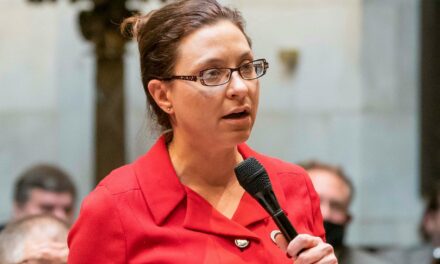
Milwaukee County officials call for more state aid to provide services
Stagnant state aid is straining the ability of Milwaukee County to provide services to those with mental health needs and disabilities, according to County Executive Chris Abele and other officials.
Abele and leaders of the county’s departments discussed their budget for the upcoming fiscal year at a Tuesday forum hosted by the Milwaukee Mental Health Task Force and Make It Work Milwaukee! Coalition at IndependenceFirst.
Joe Lamers, Milwaukee County director of performance, strategy and budget, told attendees that the county faces a $23.5 million operating gap in 2019.
Part of the problem is that state revenues are “essentially flat,” even though county taxpayers are sending more money to the state, according to Lamers.
“The single largest challenge we’ve got is this issue,” Abele said. “We have other issues. But you address fair funding, and we can hit all of them.”
The county is working to find savings, including shifting behavioral health services to community-based facilities. Jeanne Dorff, fiscal administrator for the Department of Health and Human Services, said they’re also focused on integration.
Dorff said they’re working on better coordinating care and case management as well as providing additional training for peer specialists.
Barbara Beckert, Disability Rights Wisconsin Milwaukee Office director, said the county’s Behavioral Health Division plans to pursue a number of “positive initiatives.”
“On the other hand, because of some budgeting constraints that they’ve had to deal with, I think we’re not seeing expansion of community services at the level that had been hoped for and anticipated,” she said.
There’s a need for additional support from the state and federal government, she said. Another challenge is growing county pension costs.
Beckert’s pleased that the county isn’t planning to change fare or the service area for paratransit. But she’s concerned with a proposed doubling of fares for transit passes that are helpful for low-income people with disabilities.
“After people pay for rent or food, they don’t have a lot left for transportation,” she said. “Having that reduced rate is very important.”
Daniel Boehm, president and managing director for the Milwaukee County Transit System, told attendees that the fare changes where “what we felt we had to do to submit a balanced budget.”
“The Abele administration received our requested budget. They’re certainly not pleased and we are not pleased with these changes,” he said. “They are working very hard to analyze all of the budgets across the county and try to see where they might be able to find additional revenue to reverse these requested changes.”
This article first appeared in the Wisconsin Health News daily email newsletter. Sign up for your free trial here.





